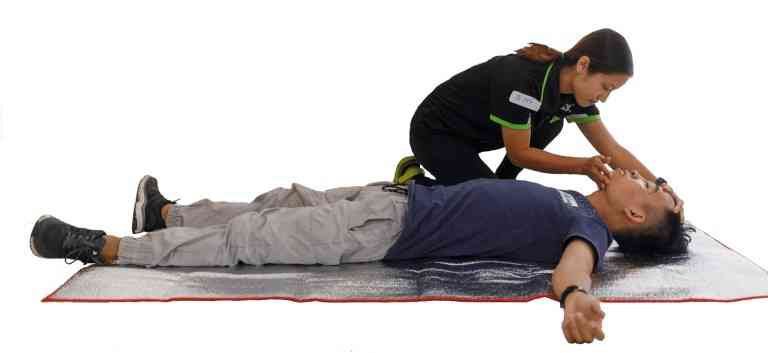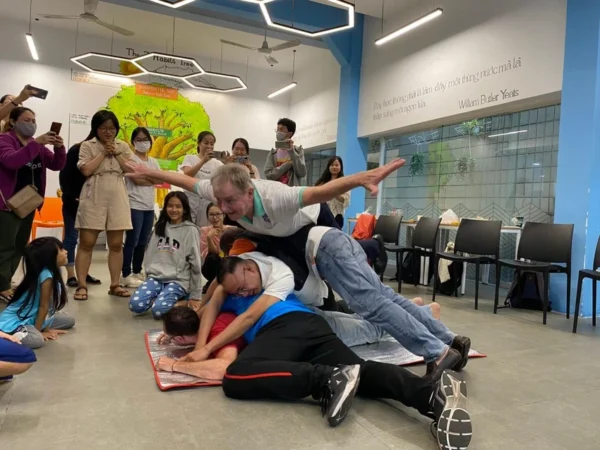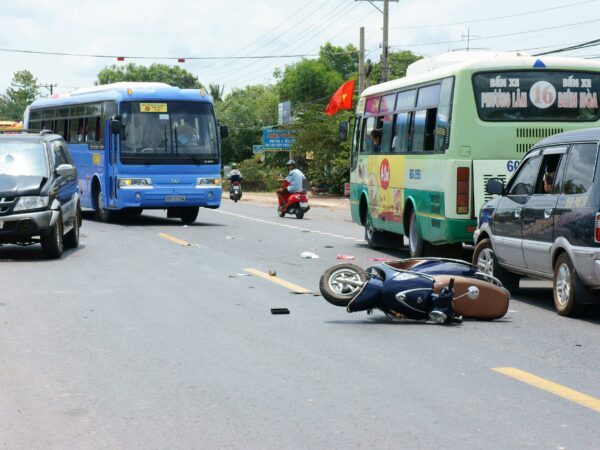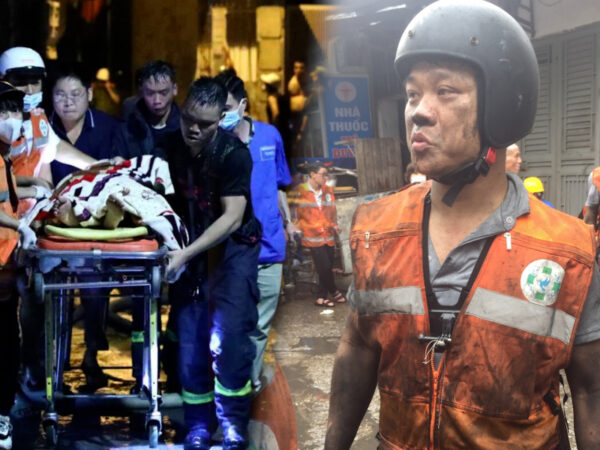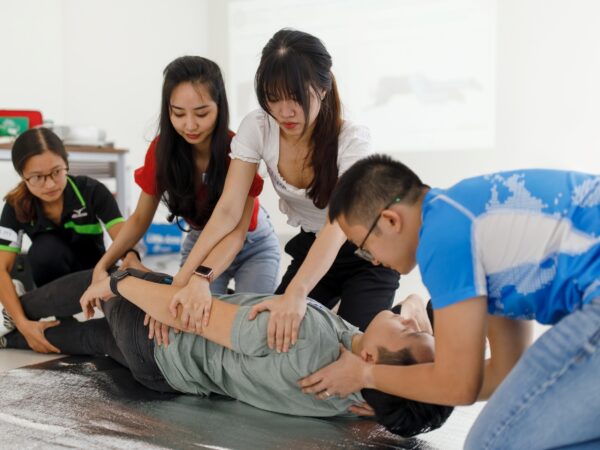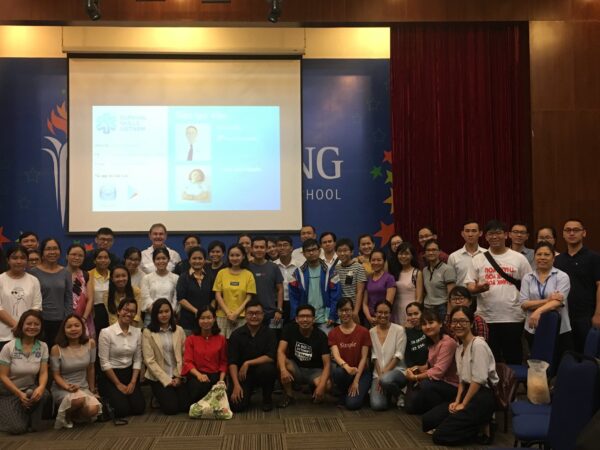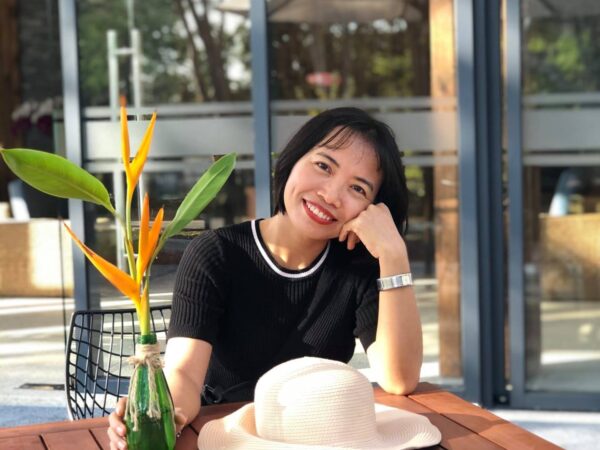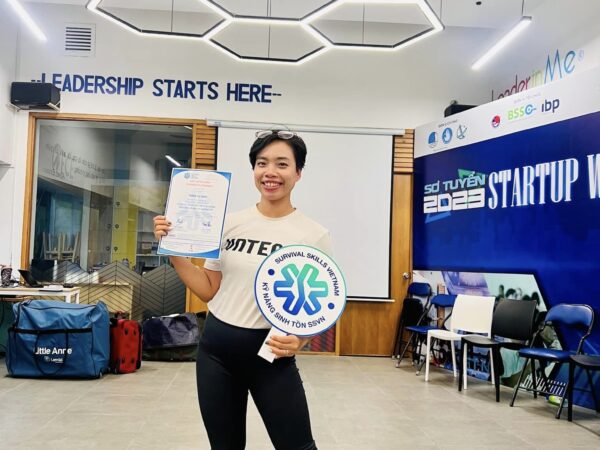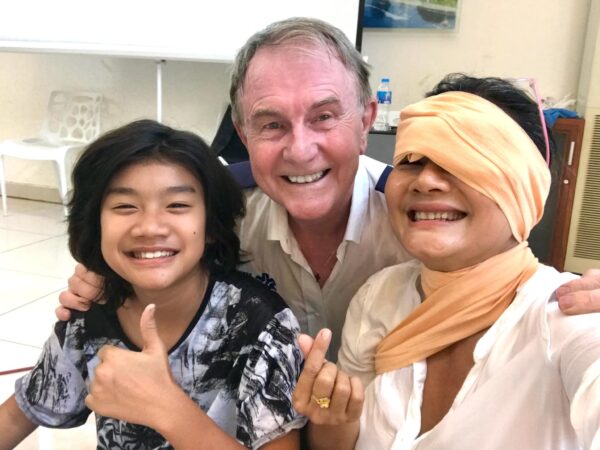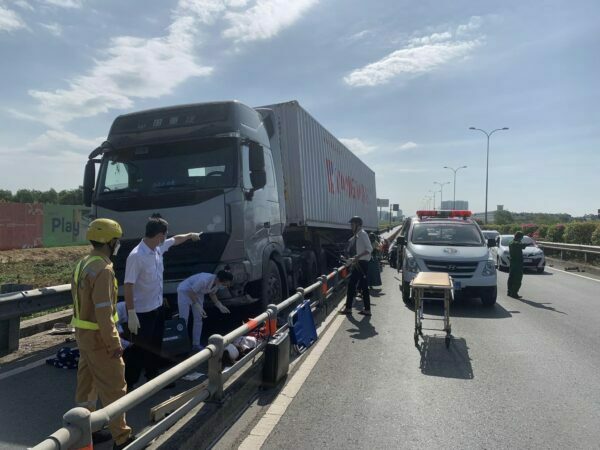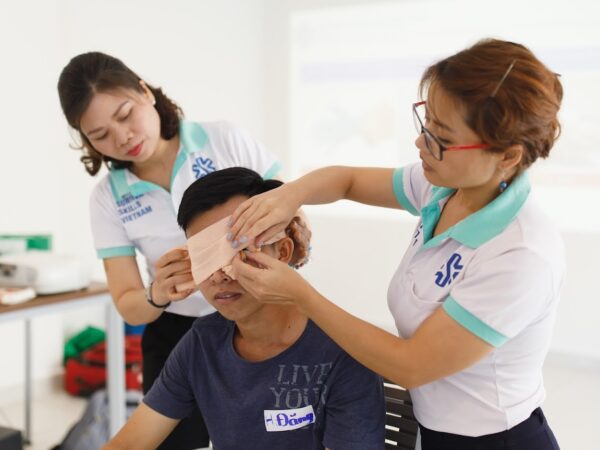In addition, SSVN provides learners a learning and practice ecosystem that only few organisations can offer includes e-learning online learning systems, mobile applications, smart In Case of Ememrgency Cards, smart books.
Talking Numbers
Don't lose your loved ones for not knowing first aid!

FIRST AID CAN HELP YOU

Protect your family
Handle correctly everyday accidents such as choking, electrick shock, bleeding, drowning, stroke etc

Enhance workplace safety
Reduce expenses and damages, recorgnise stroke early, emergency fire escape etc

Supported by others
Enable your friends and family to help you and help each other in case of emergency.
Feedbacks and stories from learners
More than just CPR: An inspiring internship at a social enterprise in Vietnam
Before coming to Vietnam, I knew I would do an internship at...
More Than Just CPR: My Eye-Opening Internship at a Social Enterprise in Vietnam
Before coming to Vietnam, I knew I would be interning at a...
Ha Mi: The Visually Impaired Girl with a Passion for First Aid
Meet Luong Ngoc Ha Mi, a third-year International Relations student at the...
U70 goes to learn survival skills
Haunted by the times of jostling to go to the temple and...
SSVN students apply first aid knowledge to save victims
On the morning of April 10, 2024, Mr. Nghia Pham, a former...
SSVN students were awarded the medal of bravery by the President.
Mr. Pham Quoc Viet, 36 years old, FAS Angel First Aid Support...
A fatal mistake when learning first aid for snake bite through movies
Movies while intended for entertainment purposes can sometimes convey misleading information...
Severe burn incident while traveling in Dubai due to lack of first aid knowledge
Ms Thao Nguyen (HCMC) shared about a burn incidents that could...
Is it “heartless” to encounter someone in need but not help?
I used to feel extremely helpless when faced with someone in...
Save people but don’t hurt yourself
In many cases, we see people rushing to rescue others who have...
Escape in a fire from the perspective of a chemistry teacher
Mục lục: Ms. Phan Ngoc Bich, a chemistry teacher at Nguyen Hue...
Escaping death in an instant thanks to knowing first aid
Currently, cases of sudden cardiac arrest are increasingly common, not only in...
Main actor of the film “Southern Land” learns first aid with SSVN
Ky Phong is one of the main faces of the movie...
Saving a critical patient after being hit by a container truck thanks to learning first aid
The container truck on Ho Chi Minh City – Long Thanh...
Are first aid skills necessary with Grabers?
Being Asked if they regret spending half a day attending a first...
Why learning First Aid with SSVN

Paramedic expert Tony Coffey
Mr. Tony Coffey has directly involved in paramedicine, water rescue and training in Sydney (Australia) since 1991 in many organisations such as New South Wales Ambulance, Sutherland Council, Surf Life Saving Sydney, Healthcorp.
He also directly involved in writing curriculums for many proffessional first aid training organisations. At the same time, he’s also the author of the second most popular First aid guidebook in Australia and New Zealand.

Vietnamese trainers and facilitators
The Vietnamese trainers and facilitators are doctors, nurses and medical lecturers with more than 10 years of experience. They are working in emergency departments and medical universities.
They are all re-certified annually and undergo professional development to bring your the most engaging classes.

Q&A
- Why is SSVN's program called ``International``?SSVN’s first aid training programs follow the latest guidelines of the International Liaison Committee on Resuscitation (ILCOR) and reference the American and Asian Red Cross. Water rescue training programs are transferred directly from Surf Life Saving Services – the Australia’s peak water rescue body with more than 100 years of experience.
- Where is the certificate issued by SSVN recognised?Thanks to its compliance with international standards, SSVN’s certification has been recognized by many international companies and organizations for the purposes of job application, immigration, practice, etc. in different countries.
Since 2022, SSVN’s first aid and water rescue training certification has be recognized in Australia by Surf Life Saving Services – the largest water rescue organization in Australia.
However, to ensure SSVN’s certification is recognized by the organization you are interested in, you can send the SSVN certification form to this organization for confirmation before participating in the study.
- What standards do SSVN's programs meet?
- SSVN Survival Skills training programs are highly applicable and follow the standards of the Australian Skills Quality Authority (ASQA) and especially the Standards for RTO’s 2015 (Standards for RTO’s 2015). for Australian Registered Training Organizations 2015)
- The training methodology is created by holders of a minimum of qualification of TAE50116 Diploma of Vocational Education, who have been trained by Australian Registered Training Organizations.
- This method includes the Knowledge and Performance elements from HLTAID009 Provide cardiopulmonary resuscitation and HLTAID011 Provide first aid from the Health packages of the Australian government Dept of Education, Skills and Employment with some adjustments for students in Vietnam due to some differences in circumstances and regulations. determined.SSVN’s first aid and CPR training follows the recommendations of the 2020 International Liaison Committee on Resuscitation and the April 2021 Australian and New Zealand Resuscitation Council. and New Zealand Resuscitation Council – ANZCOR).
- Where does SSVN provide its service?SSVN has so far provided first aid training services to many provinces and cities across the country. SSVN offers all courses for all subjects in Ho Chi Minh City. For localities outside the city. HCM, SSVN provides training services for businesses – customers cover the travelling and accommodation expenses for trainers (if they have to stay overnight). In addition, SSVN provides an e-learning program for in-depth theoretical learning at a distance. Up to now, SSVN has conducted training for many localities in Vietnam as well as abroad including Australia, Thailand, and Laos.
- Why is SSVN called “social enterprise”?Compared to the mission of reducing preventable casualties in Vietnam, the funding SSVN currently receives is very little, so SSVN increases our income through commercial operations to invest in social programs. The target subjects of SSVN’s social programs are disadvantaged and vulnerable groups or those who care for vulnerable subjects such as: pupils, students, people with disabilities, teachers or caregivers, volunteering rescuers, etc.

